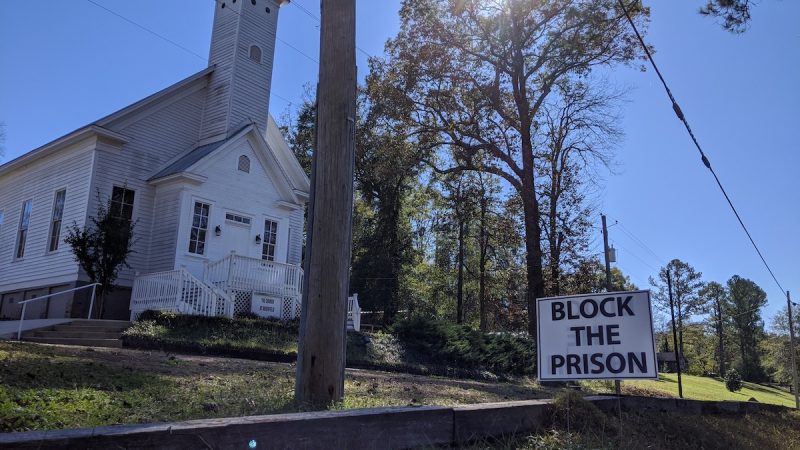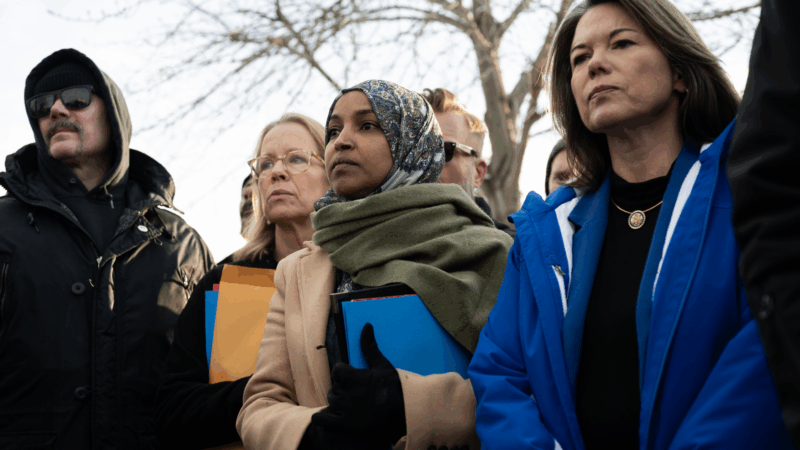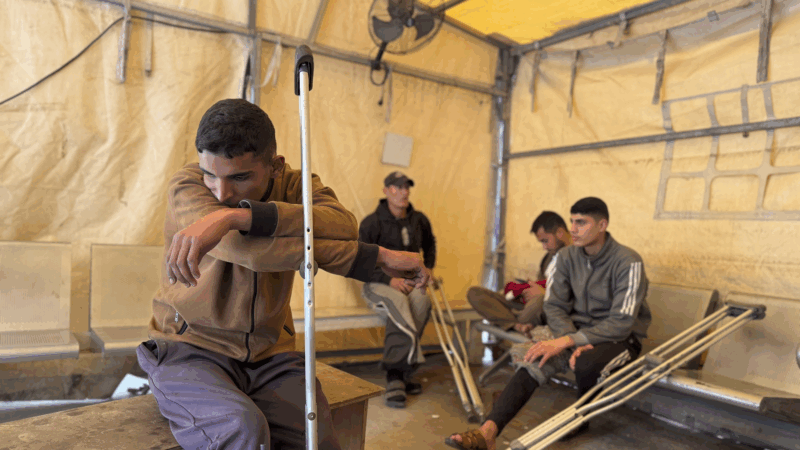Lawsuit aims to block Alabama from using COVID relief funds on prison project
A sign in Brierfield, Ala. opposing prison construction previously slated for the town. Photo taken Nov. 20, 2020.
More than 60 men incarcerated in Alabama filed a lawsuit on Monday against the U.S. Department of the Treasury, asking a federal judge to restrict the state from spending $400 million of its COVID-19 pandemic relief money on new prisons.
The move comes months after the Department of the Treasury issued guidance saying prison construction is a “generally ineligible” use of American Rescue Plan (ARP) funds.
The plaintiffs claim in the lawsuit that new buildings will not improve prison conditions and do not help communities recover from the pandemic. They also allege that Treasury officials are breaking the law by refusing to intervene and are asking a federal judge to step in.
“The Treasury has chosen to remain silent as Alabama defies the purpose of ARP by misappropriating approximately 20% of funds granted to Alabama … for prison construction,” Richard Rice, the lead attorney on the case, said in a statement.
Alabama officials previously said the rules did not affect their plans because the ARP funds were making up for lost revenue needed for prison construction.
They claim new correctional facilities will help alleviate widespread violence, overcrowding and understaffing in Alabama’s prisons for men, the subject of an ongoing lawsuit filed by the U.S. Department of Justice.
Several other states, including Mississippi and Louisiana, have also discussed using COVID relief money to build jails and prisons, though Alabama’s plans are among the most expensive.
The state will spend roughly $1.3 billion to build two mega prisons for men, combining the $400 million in ARP funds with roughly $500 million in bonds, which are expected to finalize Tuesday, plus additional money from the state’s general fund.
The lawsuit filed Monday is the latest attempt to halt the project. In recent weeks, incarcerated people and advocates have filed separate lawsuits and issued statements opposing the project.
To hear more about Alabama’s plan to build new prisons, check out WBHM’s podcast Deliberate Indifference.
This story was produced by the Gulf States Newsroom, a collaboration among Mississippi Public Broadcasting, WBHM in Alabama and WWNO and WRKF in Louisiana and NPR.
America’s top figure skaters dazzled St. Louis. I left with a new love for the sport.
The U.S. Figure Skating National Championships brought the who's who of the sport to St. Louis. St. Louis Public Radio Visuals Editor Brian Munoz left a new fan of the Olympic sport.
DHS restricts congressional visits to ICE facilities in Minneapolis with new policy
A memo from Homeland Security Secretary Kristi Noem, obtained by NPR, instructs her staff that visits should be requested at least seven days in advance.
Historic upset in English soccer’s FA Cup as Macclesfield beat holders Crystal Palace
The result marks the first time in 117 years that a side from outside the major national leagues has eliminated the reigning FA Cup holders.
Venezuela’s exiles in Chile caught between hope and uncertainty
Initial joy among Venezuela's diaspora in Chile has given way to caution, as questions grow over what Maduro's capture means for the country — and for those who fled it.
Sunday Puzzle: Pet theory
NPR's Sacha Pfeiffer plays the puzzle with KAMW listener Daniel Abramson of Albuquerque, N.M, and Weekend Edition Puzzlemaster Will Shortz.
Inside a Gaza medical clinic at risk of shutting down after an Israeli ban
A recent Israeli decision to bar Doctors Without Borders and other aid groups means international staff and aid can no longer enter Gaza or the West Bank. Local staff must rely on dwindling supplies and no international expertise.








